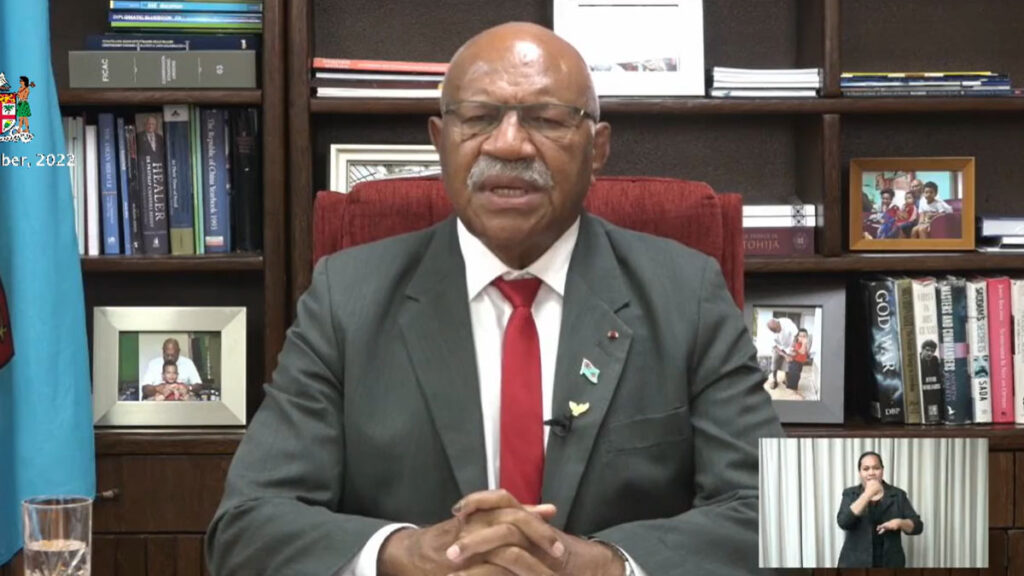
The Fijian government has expressed satisfaction with a pivotal Supreme Court decision that simplifies the process for amending the country’s 2013 Constitution. This ruling requires the support of two-thirds of Parliament and a simple majority of voters in a referendum, as opposed to the previous requirement of 75 percent approval from both Parliament and registered voters.
Prime Minister Sitiveni Rabuka welcomed the decision, emphasizing the government’s commitment to democratic processes and the rule of law. “This outcome reflects our dedication to inclusive decision-making and ensures a stable, transparent path for constitutional reform,” Rabuka stated.
Supreme Court’s Ruling and Its Implications
The Supreme Court’s opinion, delivered by Chief Justice Salesi Temo, deemed the previous amendment process unworkable. The court maintained that the immunity provisions for those involved in the 1987 and 2006 coups remain unchanged. Furthermore, the court confirmed the invalidity of the 1997 Constitution, citing the three general elections conducted under the 2013 framework.
“The 2013 Fijian Constitution can be amended by the support of two-thirds of Members of Parliament and a majority of those registered voters who vote for the change in a referendum after the parliamentary vote,” Chief Justice Temo stated.
This decision marks a significant shift in Fiji’s constitutional landscape, potentially paving the way for more democratic engagement in the nation’s governance.
Reactions from Political Leaders and Institutions
Deputy Prime Minister and Minister for Finance, Professor Biman Prasad, praised the ruling as a return of democratic control to the Fijian people. He advocated for a national dialogue to shape a constitution that reflects the will of all citizens, emphasizing the importance of a representative Constitutional Review Commission.
Conversely, the Great Council of Chiefs (GCC) acknowledged the ruling but questioned its cultural legitimacy. GCC Chairman Ratu Viliame Seruvakula highlighted the lack of customary dialogue in the 2013 Constitution’s development, calling for a more inclusive constitutional review process that involves diverse societal voices.
“A constitution that endures must arise not just from legal machinery, but from lived values and communal consensus,” Ratu Viliame stated.
Meanwhile, the Social Democratic Liberal Party (SODELPA) expressed disappointment, maintaining that the 1997 Constitution remains a legal document. They now face the challenge of garnering parliamentary and public support for any amendments.
Historical Context and Future Prospects
The 2013 Constitution was established following a period of political upheaval in Fiji, including coups in 1987 and 2006. The Supreme Court’s recent ruling is seen as a step towards reconciling past grievances and fostering a more participatory democratic process.
Fiji Labour Party Leader Mahendra Chaudhry described the decision as a “middle ground” that aligns with public sentiment. Unity Fiji Leader Savenaca Narube also expressed satisfaction with the decision, noting that it facilitates greater public involvement in constitutional amendments.
As the government prepares to deliberate further on the Supreme Court’s opinion, the focus will likely shift towards engaging the public and various stakeholders in shaping Fiji’s constitutional future. This decision could serve as a catalyst for broader legal and political reforms, potentially redefining the nation’s governance framework.
The path forward involves balancing legal requirements with cultural and societal expectations, ensuring that any constitutional changes are both legally sound and culturally resonant. The government, alongside civil society and traditional leaders, will need to navigate these complexities to achieve a constitution that truly reflects the will of the Fijian people.






